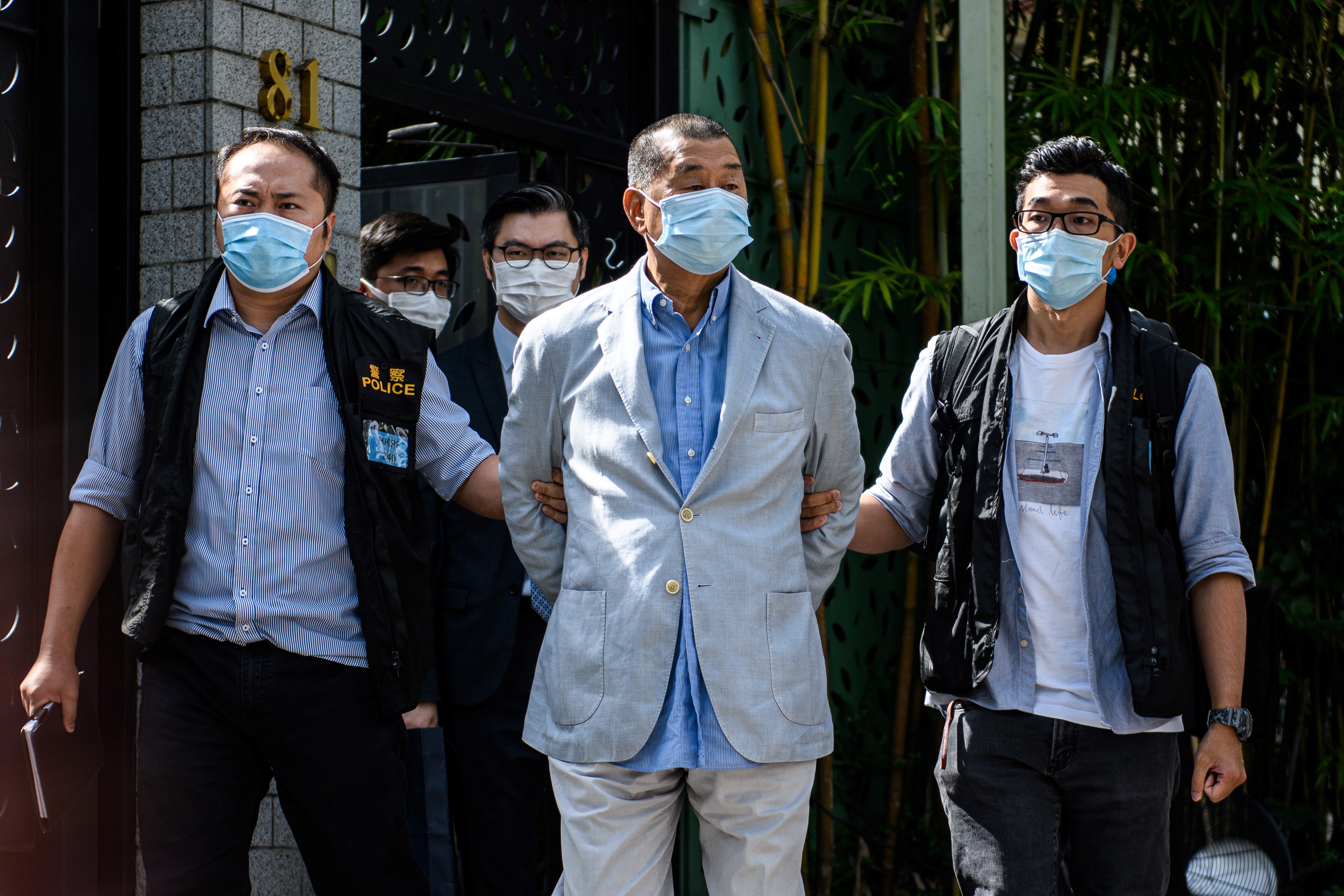China on Monday sanctioned 11 Americans, including senators Marco Rubio and Ted Cruz, in retaliation for similar US moves prompted by Beijing’s crackdown in Hong Kong.
Washington last week accused 11 officials of suppressing “freedom and democratic processes” in Hong Kong, including city leader Carrie Lam, and announced plans to freeze their US assets.
It was the toughest US action yet in response to Beijing’s introduction of a sweeping and controversial new national security law for the territory.
Beijing said the measure was a violation of international law and “grossly interferes in China’s internal affairs”.
“China has decided to impose sanctions on some people that behaved badly on Hong Kong-related issues,” foreign ministry spokesman Zhao Lijian said Monday, with Human Rights Watch director Kenneth Roth and National Endowment for Democracy president Carl Gershman also on the list.
READ MORE: China purchase of US agriculture lags
Zhao did not give details of what the sanctions would entail.
“Last month #China banned me. Today they sanctioned me. I don’t want to be paranoid but I am starting to think they don’t like me,” Rubio tweeted.
Republican senators Rubio and Cruz established themselves as two of the most vocal supporters of Hong Kong’s democracy movement last year, when the city was convulsed by huge and sometimes violent protests.
Beijing has accused “external forces” of fomenting unrest and responded to the unrest by imposing the security law in late June, sending a political chill through the semi-autonomous finance hub.
Since then, the city’s leaders have postponed local elections, citing the coronavirus pandemic.
“The Chinese government’s announcement of unspecified sanctions against me is little more than an effort to distract attention from its wholesale assault on the rights of the people of Hong Kong,” Roth said in a statement issued by Human Rights Watch.
Authorities have also issued arrest warrants for six exiled pro-democracy campaigners and launched a crackdown on other activists.
On Monday, Hong Kong media mogul Jimmy Lai, one of the city’s most vocal Beijing critics, was arrested under the security law.
“Jimmy Lai and his son were charged with ‘colluding w/ foreign powers,'” Rubio said.
“As more arrests are expected, the free world must respond quickly as well as provide safe harbor to at-risk Hong Kongers.”
China-US clashes
The US measures come three months ahead of the November presidential election in which the incumbent Donald Trump, who trails his rival Joe Biden in the polls, is campaigning hard on an increasingly strident anti-Beijing message.
As public disapproval has grown for his handling of the pandemic, Trump has pivoted from his previous focus on striking a trade deal with China to blaming the country for the coronavirus crisis.
Washington and Beijing have sparred on multiple fronts in recent months, and both sides have already imposed sanctions on each other over China’s mass internment of mostly Muslim minorities in Xinjiang.
“The Chinese government’s announcement of unspecified sanctions against me is little more than an effort to distract attention from its wholesale assault on the rights of the people of Hong Kong.” Human Rights Watch.
Trump on Thursday ordered Americans to stop doing business within 45 days with popular Chinese apps WeChat and TikTok.
The order claimed TikTok could be used by China to track the locations of federal employees, build dossiers on people for blackmail and conduct corporate espionage.
Zhao said Monday that Washington’s Hong Kong-related sanctions “will only make the world more aware of US hegemony, bullying and double standards”.
Shares in Next Digital surged more than 340% as supporters of Lai scooped up the stock after he was arrested under Hong Kong’s new national security law, Reuters reports.
Lai is the highest profile person to be arrested under the legislation. He was detained on suspicion of colluding with foreign forces, a crime punishable by up to life in prison.
“The only way I can think of to support Next Media is to buy its stock.” Stanley Wong.
After initially falling by almost a fifth, shares in Next Digital, which publishes Apple Daily, a pro-democracy, tabloid-style newspaper that also produces investigative work, jumped as much as 344% to their highest since June 2019 at HK$0.40, boosting its market value by HK$817 million ($105.42 million).
Having logged record trading volume, the stock eventually closed up 183%.
A former columnist for the media group, Stanley Wong, said he bought 1.2 million shares before noon to show support for the company and then offloaded them, making a profit of HK$75,000. Wong said he would use the proceeds to fund a scholarship at the Chinese University of Hong Kong.
“The only way I can think of to support Next Media is to buy its stock,” Wong said.
Netizens called the surge a “yellow stock circle,” referring to companies that support Hong Kong’s democracy movement, and “stock with you”. One said purchasing shares was the only way to show support and they didn’t care if they lost all their money.
Other supporters posted screenshots of their share purchases on Facebook, although Reuters was unable to verify the authenticity of the posts.
Some brokers meanwhile speculated Lai may be forced to sell the group, while market watchers also said the prospect of new leadership at the company could be behind the surge.
“After this event, the market is looking ahead. Maybe, if this chairman is no longer here, another person would take this company in a different direction,” said Kenny Ng, an analyst at brokerage Everbright Sun Hung Kai in Hong Kong.
- Reporting by Ludovic Ehret and Jing Xuan Teng at AFP; Donny Kwok, Clare Jim, Noah Sin and Alun John at Reuters
























